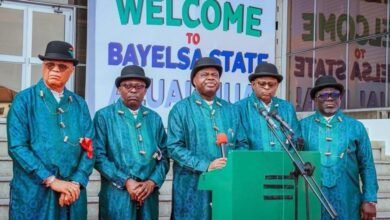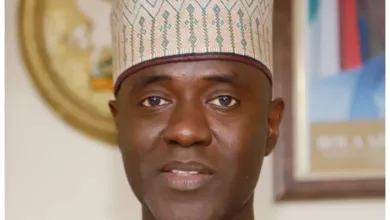News
Nigeria’s Economic Winds Are Shifting

Capital, as the old adage goes, is a coward; it flees uncertainty and gravitates towards clarity and opportunity. For years, Nigeria’s economy had been a case study in unrealised potential—vast resources, dynamic people, but hampered by weak policy choices and wavering investor confidence. Yet the tide appears to be turning.
Foreign portfolio investment (FPI)—a key gauge of international investor sentiment—tells the story most vividly. Under Yar’Adua (2007–2010), FPI shrank by –6.22%. Jonathan’s administration oversaw a 77.55% surge, reflecting a period of relative optimism. Buhari’s years, however, saw sharp declines: –8% in his first term and a staggering –56.46% in the second. Then, almost as if on cue, the curve bent upwards. Since 2023, under President Bola Ahmed Tinubu, FPI has soared by 253.89%, the sharpest rebound in nearly two decades.
To a non-economist, these are mere numbers. But why does this matter? Unlike foreign direct investment (FDI), which builds factories and infrastructure, portfolio flows are more fickle: they chase returns, test waters, and retreat when policy missteps loom. But they are also barometers. Rising inflows into Nigerian equities and bonds reflect renewed confidence in the economy’s direction. In Nigeria, this is exactly the case. For the first time in years, international investors are beginning to believe Nigeria can deliver on its promise.
This resurgence is the product of a new policy thrust—anchored by Wale Edun, the Minister of Finance and Coordinating Minister of the Economy. Since assuming office, Edun has spearheaded reforms designed to restore macroeconomic stability and signal seriousness to the markets. From the unification of exchange rates to the removal of unsustainable subsidies, his stewardship has aimed to replace opacity with clarity, and restore distortions with discipline.
The numbers back this up. Data from the National Bureau of Statistics shows capital importation in the first half of 2024 more than doubled year-on-year, with portfolio inflows accounting for over half of the total. By mid-2025, the Nigerian Exchange had recorded foreign investment inflows of N1.3 trillion, more than twice the figure of the previous year. Meanwhile, the Central Bank has reported increasing foreign reserves and improved liquidity in the FX market, easing some of the pressure that had long constrained businesses and consumers alike.
None of this is to say Nigeria’s economy is suddenly out of the woods. Structural challenges remain: FDI is still anaemic, accounting for just over 1% of inflows in 2024. Infrastructure gaps persist, and inflation still bites. But the significance of rising FPI is that it buys time and space—it allows the government to fund deficits, stabilise the Naira, and attract attention back to sectors such as manufacturing, agriculture, and technology. The more confidence grows, the more likely it is that hot money can be converted into long-term commitments.
For ordinary Nigerians, the gains may not yet be obvious. But the logic is straightforward: more investment means stronger capital markets, better access to credit, and, ultimately, resources for job creation and public services. For telecoms, banks, and energy firms alike, it means the ability to expand, upgrade, and innovate. Confidence in the macroeconomy creates ripple effects that touch lives—from the reliability of power supply to the speed of internet connections, to the price of food in the market.
Mr. Edun’s challenge is to sustain momentum and deepen reforms. His task is not just to attract capital but to ensure it translates into impact. Nigerians will judge less by the glow of investor optimism than by the feel of economic relief in their daily lives. Still, the story today is one of resurgence: Nigeria is back on the radar of global investors.
– Bernard Okri – Global Economic Policy Initiative (GEPIn)




